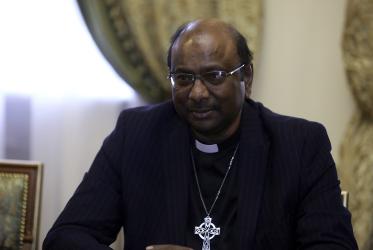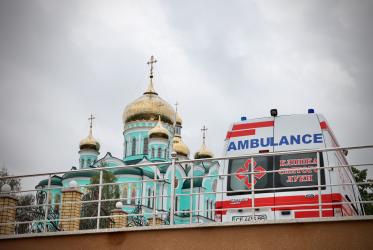Displaying 1 - 20 of 31
28 September 2023
In Armenia, WCC general secretary speaks for justice
22 September 2023
Ecumenical delegation visits Armenia
19 September 2023
Ukraine: Auf humanitäre Bedürfnisse reagieren
27 September 2022
Ukraine: Responding to humanitarian need
08 September 2022
Kloster in der Ukraine reagiert auf Kriegsfolgen
11 August 2022
Monastery in Ukraine responds to the consequences of war
09 August 2022
Pater Ioan Sauca: „Gott ist an der Seite der Leidenden“
14 April 2022
WCC leaders recall life-changing experiences from early days
10 February 2022













